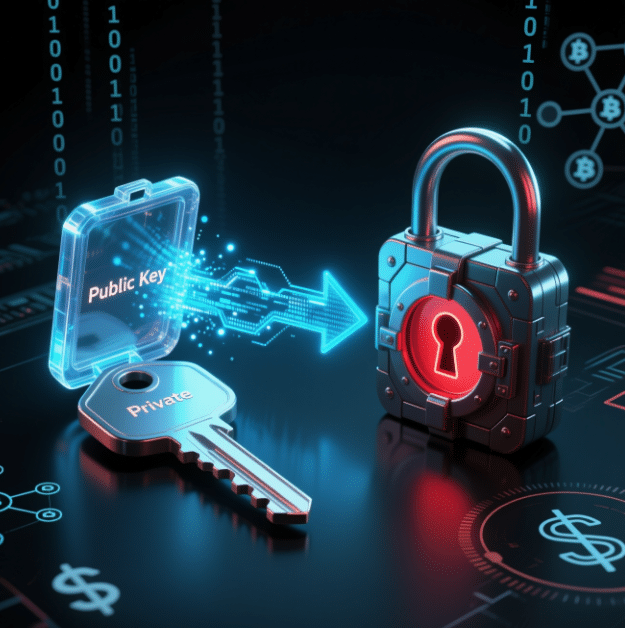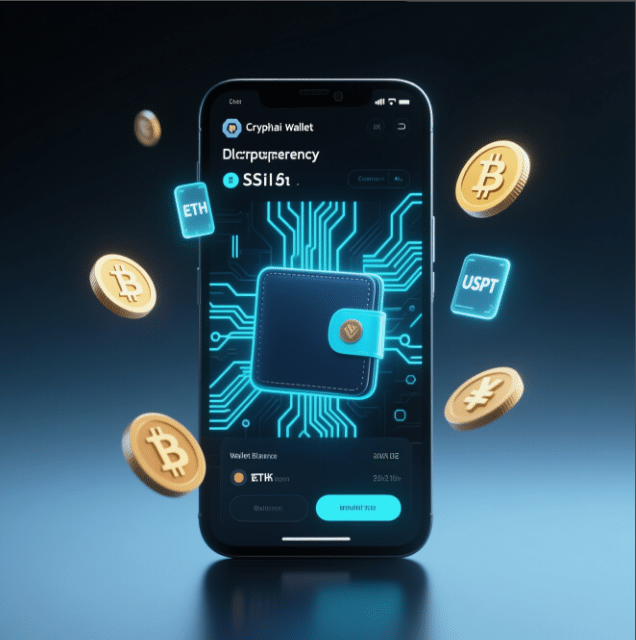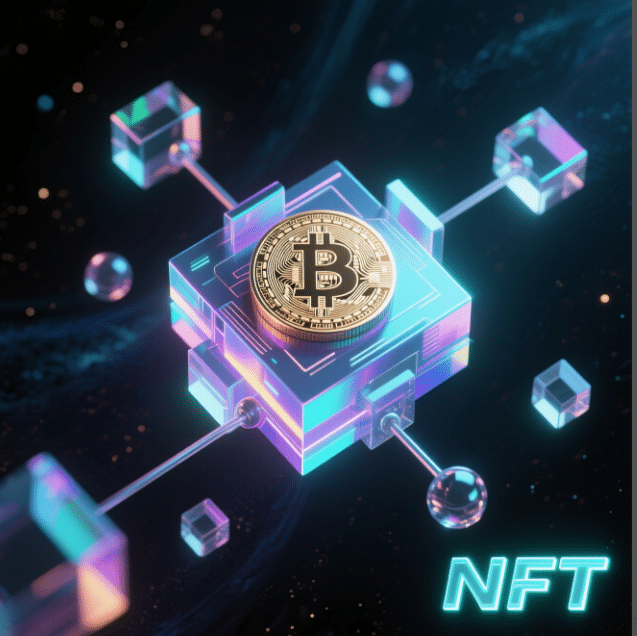
What is Cryptocurrency and How Does It Work?
August 22, 2025
Difference Between Coins and Tokens in Crypto: A Beginner-Friendly Guide
August 22, 2025If you’ve ever heard people talk about blockchain and thought, “That sounds complicated,” you’re not alone. At first glance, blockchain technology can seem intimidating, full of technical jargon and computer science concepts that only programmers or crypto traders might understand. But the truth is, the basic idea of blockchain is surprisingly simple once you strip away the buzzwords.
In this article, we’ll break down blockchain into easy-to-digest explanations, relatable examples, and beginner-friendly analogies. By the end, you’ll understand what blockchain is, why it matters, and how it’s shaping industries far beyond cryptocurrency. Let’s dive in.
What Exactly Is Blockchain?
At its core, blockchain is a type of database. But unlike traditional databases controlled by a company, government, or central authority, blockchain is decentralized. That means no single person or organization owns or manages the whole system. Instead, it’s maintained collectively by thousands (or even millions) of participants around the world.
Imagine blockchain as a digital ledger—like a notebook that records every transaction. The difference? Everyone has a copy of this notebook, and once something is written inside, it can’t be erased or changed without everyone noticing.
Key Features of Blockchain:
- Decentralization – No single authority controls the system.
- Transparency – Every transaction is visible to all participants.
- Immutability – Once data is added, it cannot be altered.
- Security – Transactions are protected by advanced cryptography.
How Does Blockchain Work? (Without the Tech Jargon)
Let’s imagine a group of friends playing poker online. Normally, you’d need a dealer or central authority to keep track of the bets and winnings. But what if no one trusts the dealer? Blockchain solves this problem by removing the dealer.
- Transaction Creation – A player bets 10 chips. That’s like a transaction.
- Broadcasting – The bet is announced to everyone in the group.
- Verification – Everyone checks if the player actually has 10 chips to bet.
- Block Formation – The transaction is bundled with others into a “block.”
- Chain Linking – That block is added to the chain of previous blocks (hence “blockchain”).
Every participant gets an updated copy of the ledger instantly. This ensures fairness, transparency, and security.
Why Blockchain Matters Beyond Cryptocurrency
Most people first hear about blockchain in the context of Bitcoin or cryptocurrencies, but its uses extend far beyond digital money.
1. Financial Services
Banks and payment processors use blockchain to reduce fraud, speed up transfers, and cut transaction fees. Imagine sending money internationally in seconds, not days.
2. Supply Chain Management
Companies like Walmart and Maersk use blockchain to track goods from production to delivery. For example, if there’s a food safety recall, blockchain helps pinpoint exactly where the contamination happened.
3. Healthcare
Patient records stored on blockchain are secure, transparent, and accessible to authorized doctors instantly—without the risks of tampering.
4. Voting Systems
Blockchain could make elections more transparent by preventing fraud and ensuring every vote is counted correctly.
5. Digital Identity
Imagine owning a secure digital passport or ID on blockchain that no hacker or government can forge.
Breaking Down Blockchain with Simple Analogies
- Blockchain as Google Docs – Multiple people can view the same file in real time. Blockchain works similarly, but it’s much more secure.
- Blockchain as a Train – Each transaction is like a passenger in a train car. Once sealed, the car is added to the train. That’s how blocks link together.
- Blockchain as a Neighborhood Watch – Instead of one guard (like a bank), everyone watches each other’s property.
Benefits of Blockchain for Beginners
- No Middlemen – You don’t need banks or intermediaries for transactions.
- Security – Transactions are nearly impossible to hack.
- Global Access – Anyone with internet can participate.
- Lower Costs – Fewer fees compared to traditional systems.
- Ownership – You control your assets without relying on third parties.
The Role of Cryptocurrency Exchanges
While blockchain powers cryptocurrencies, exchanges make them accessible. A crypto exchange is a marketplace where you can buy, sell, and trade digital assets. For example, platforms like Exbix provide users with a secure crypto exchange environment to explore blockchain-powered currencies.
Common Misconceptions About Blockchain
Myth 1: Blockchain Is Only for Cryptocurrency
Reality: While crypto is its first use case, blockchain applies to healthcare, supply chains, voting, and even music royalties.
Myth 2: Blockchain Is 100% Anonymous
Reality: Most blockchains are pseudonymous. Transactions are tied to wallet addresses, not names, but they can often be traced.
Myth 3: Blockchain Is Unsafe
Reality: Blockchain is one of the safest technologies because altering a block would require hacking every participant’s copy simultaneously.
Myth 4: Blockchain Wastes Energy
Reality: Some blockchains use proof-of-work (energy-intensive), but newer proof-of-stake models are far more eco-friendly.
How to Start Your Blockchain Journey
- Learn the Basics – Read beginner-friendly articles and videos.
- Create a Wallet – A digital wallet lets you store cryptocurrencies safely.
- Start Small – Buy a little cryptocurrency via Exbix as a beginner crypto guide.
- Explore Use Cases – Try NFT marketplaces, blockchain games, and DeFi apps.
- Stay Secure – Always use 2FA and never share private keys.
The Future of Blockchain
Blockchain is still in its early stages, much like the internet in the 1990s. Back then, people thought the internet was just for emails. Today, it powers commerce, entertainment, and communication. Blockchain is on the same path.
We can expect:
- Wider Adoption – Governments and corporations are experimenting with blockchain.
- Integration – From digital IDs to medical records, blockchain will touch more aspects of our lives.
- Innovation in Finance – DeFi is just the beginning; future apps could reshape banking entirely.
Final Thoughts
Blockchain doesn’t have to be overwhelming. When explained simply, it’s just a transparent, secure, and decentralized way of keeping records. From cryptocurrency to healthcare, supply chains, and beyond, blockchain is rewriting the rules of trust in the digital age.
Whether you’re here out of curiosity or planning to dive into crypto, platforms like Exbix make it easy to explore blockchain technology and discover the opportunities it brings.





